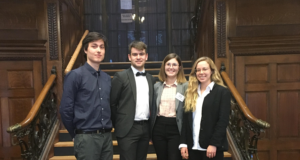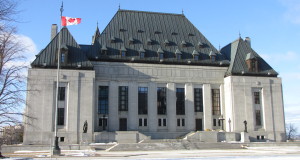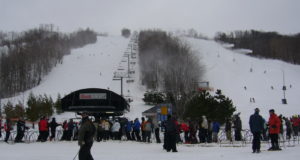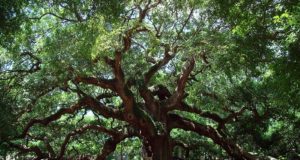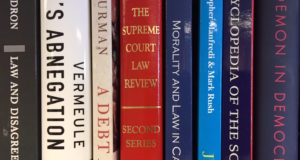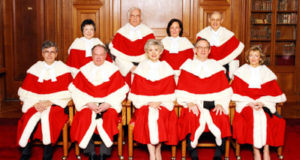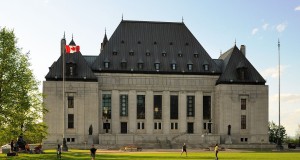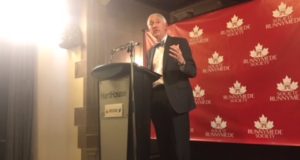This informal discussion between myself, Asher Honickman and Professor Malcolm Lavoie is owed, first of all, to a mea culpa. It’s a transcription of a discussion that was meant to be a podcast, but due to a recording issue wasn’t captured correctly. Since Asher, Malcolm and I agreed the discussion was useful and worth preserving, we’ve decided to present it ...
Read More »Yearly Archives: 2018
Welcome to the Lawless Zone: the Kawaskimhon Moot and the Refusal to Recognize State Law
Media coverage of the letter written by Quebec’s Minister of the Environment, in opposition to the new federal environmental assessment process, sparked a debate in Le Devoir on the value of Aboriginal traditional knowledge. On the one hand, a group of eight lawyers argued that “[s]ubordination of traditional knowledge to compatibility with scientific data amounts to establishing a hierarchy of ...
Read More »Comeau is a Casualty of Confused Doctrine
The Supreme Court delivered a bizarre decision last week in R.v. Comeau. By way of background, Comeau concerned the interpretation of s.121 of the Constitution Act, 1867, which states: “All Articles of the Growth, Produce, or Manufacture of any one of the Provinces shall, from and after the Union, be admitted free into each of the other Provinces.” The issue for the Court was ...
Read More »Canon to the Right of Them, Canon to the Left of Them, Canon in Front of Them
The Ontario Court of Appeal’s recent decision in Schnarr v. Blue Mountain is significant for two reasons. First, it provides much needed clarification to the law of occupiers’ liability, and to waivers of liability in particular. Second, it includes a detailed discussion of some of the principles of statutory interpretation. In this brief article, I discuss the Court of Appeal’s ...
Read More »Has the Supreme Court Moved Beyond the “Living Tree”?
One of the first things law students are taught is that our Constitution is a “living tree.” The Supreme Court has said that the living tree doctrine, which holds that our Constitution must be capable of evolving to meet new social realities, is “one of the most fundamental principles of Canadian constitutional interpretation” (See Reference Re Same Sex Marriage, at ...
Read More »“The Basic Bedford Rule” and substantive review of criminal prohibitions under section 7
How should the objective of a criminal prohibition be determined for the purpose of substantive review under section 7 of the Charter? I’m grateful that my attempt to answer that question will be published in a special edition of the Supreme Court Law Review. In my paper, I argue that the Supreme Court in Carter (2015) struck down the prohibition on assisted suicide based on ...
Read More »The Dark Art of Deference: Dubious Assumptions of Expertise on Home Statute Interpretation
The 10th anniversary of Dunsmuir presents an opportunity to revisit perhaps its most controversial aspect: the seeds it planted for a presumption of deference on home statute interpretation. As Professor Daly notes, the presumption is a “black hole” which engulfs questions of statutory interpretation in administrative law: Paul Daly, “Unreasonable Interpretations of Law” in Judicial Deference to Administrative Tribunals in ...
Read More »RIP Reasonableness
The Supreme Court recently issued its decision in Quebec (Commission des normes, de l’équité, de la santé et de la sécurité du travail) v Caron, 2018 SCC 3, which may, or may not, be another sign that the Court’s love affair with deference to administrative decision-makers is coming to an end ― in practice if not yet in theory. I ...
Read More »In No Certain Terms: The Problem with Parliament’s Marijuana Legalization Law
– ubi jus est aut vagum aut incertum, ibi maxima servitus prevalebit – On April 13, 2017, the Liberals introduced a long-awaited marijuana legalization law, Bill C-45, officially titled “An Act respecting cannabis and to amend the Controlled Drugs and Substances Act, the Criminal Code and other Acts.” The bill has now passed the House of Commons and is currently ...
Read More »Reflections on Charter Values: A Call for Judicial Humility
The Honourable Peter D. Lauwers is a Justice of the Court of Appeal for Ontario. This speech was delivered to the Runnymede Society in Toronto on January 12, 2018. It develops further some thoughts on Charter values in my article, “Liberalism and the Challenge of Religious Diversity, (2017), 79 S.C.L.R. (2d) 29. The footnotes have not been edited or completed. ...
Read More » Advocates for the Rule of Law
Advocates for the Rule of Law

